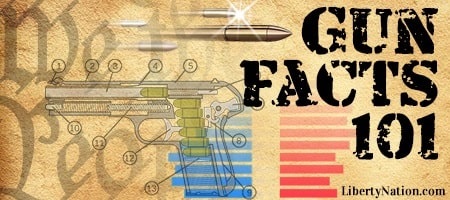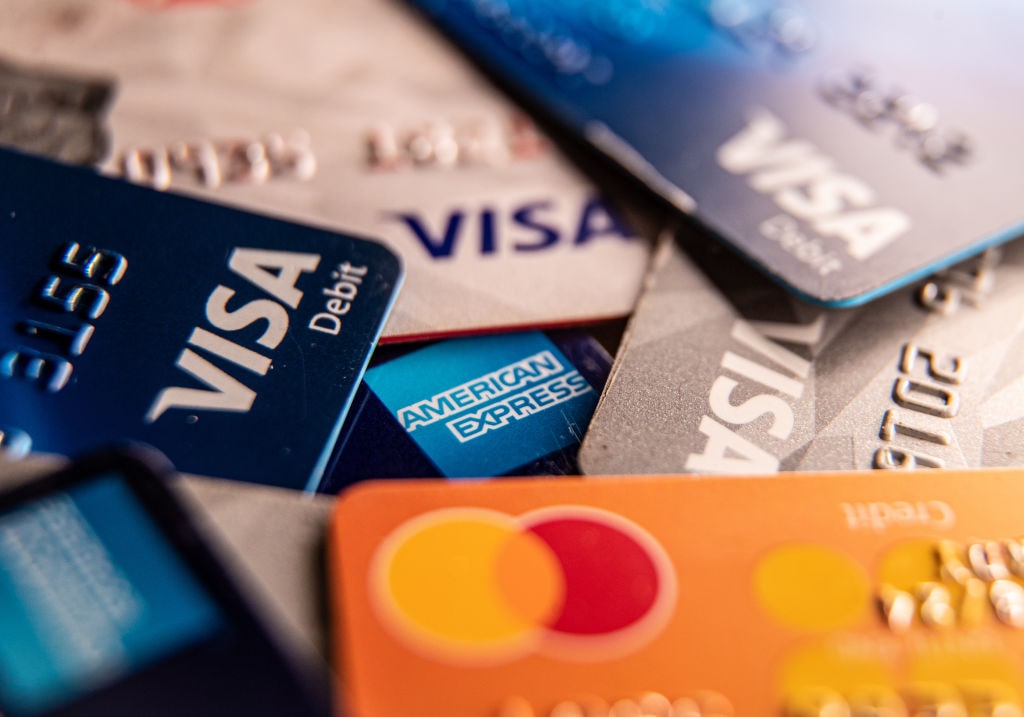American Express, Visa, and MasterCard – three of the four main credit card networks in the US – are wading into the murky waters of gun control. California passed a law last year requiring firearm and ammunition retailers to be assigned a unique merchant code to enable banks to track such purchases – and now some of the biggest names in credit cards are gearing up to comply despite consumer backlash.
Merchant Codes and the Weaponization of Banks
Merchant Category Codes are assigned to retailers based on what they sell and allow banks and credit card companies to track purchase patterns and detect fraud. But, as Liberty Nation reported earlier this year, they can also be used for more ideological purposes: “The US Treasury tasked America’s banks with finding and turning over private transactions that might indicate extremism after the January 6, 2021, incident at the Capitol … What are the signs the federal government warned about? Supporting Trump, enjoying the outdoors, exercising the right to keep and bear arms, and believing in God, it would seem.”
 The new law in California requires that gun stores be given a unique Merchant Category Code to set them aside from general sporting goods stores and other retailers, allowing credit card companies to flag “suspicious purchases.” The major credit card companies were quick to offer their compliance, but then backed down in the face of a clearly unanticipated consumer backlash. Now, however, American Express, Visa, and MasterCard are once again actively working toward compliance. But this is nothing new. Gun control advocates have pushed for this for several years, arguing that, if we can just flag the suspicious transactions when they happen, maybe we can prevent the next mass shooting.
The new law in California requires that gun stores be given a unique Merchant Category Code to set them aside from general sporting goods stores and other retailers, allowing credit card companies to flag “suspicious purchases.” The major credit card companies were quick to offer their compliance, but then backed down in the face of a clearly unanticipated consumer backlash. Now, however, American Express, Visa, and MasterCard are once again actively working toward compliance. But this is nothing new. Gun control advocates have pushed for this for several years, arguing that, if we can just flag the suspicious transactions when they happen, maybe we can prevent the next mass shooting.
The idea of transactions being flagged for investigation by law enforcement doesn’t sit well with gun owners, and that should come as no surprise. Criminals aren’t the only ones who prefer not to have their privacy violated by the government, after all. But setting aside privacy concerns, one must still wonder if this will stop at simply flagging transactions for law enforcement? Many payment platforms have long prohibited firearm transactions. PayPal goes so far as to ban users and, in some cases, fine them up to $2,500 per transaction. LN’s Graham J Noble explained debanking last year as when financial institutions sever ties with businesses or other organizations over ideological issues. “The first targets were the obvious ones: firearm manufacturers and oil companies,” Noble reported.
Credit Card Companies and Banks Can’t Do What the Government Already Does
Even if everyone’s intentions were pure, and no one involved in this push to track firearm and ammunition transactions had any desire to disarm or otherwise disenfranchise gun owners, there are practical problems with the idea of identifying mass shooters through their credit card or bank statements. Simply put, it won’t work.
Not all guns are sold in dedicated gun stores, and merchant codes aren’t item specific. Each retailer is assigned a code. Banks and credit card companies see only the total transaction with each swipe of the card, not an itemized list. So if a customer buys several cheap pistols and AR-style rifles ranging in price from a few to several hundred dollars apiece and a thousand rounds of ammunition, it might still appear to financial companies as a “less suspicious” transaction than someone who buys a single Benelli 828 double-barrel shotgun for nearly $5,000.
Bank and credit card companies couldn’t positively identify a gun sale anyway. Firearm dealers sell other items, from knives and clothing to snack food and drinks in some cases – though, at least at a gun store, any large transactions are likely to include a firearm or large quantity of ammunition. But what about a pawn shop? Perhaps that $500 transaction was a weapon – but maybe it was a guitar or a chainsaw. Even sporting goods stores sell fishing and general outdoor gear as well as equipment for sports like golf, baseball, basketball, and football. $20,000 at such a place could be an arsenal – or a boat or an ATV. Then there’s Walmart and all the hardware stores that sell guns. Good luck identifying those purchases by transaction amounts.
And, finally, this would do nothing to track firearms that were stolen or purchased from an individual – and that’s a much bigger factor here than one might suspect. Despite the astronomical number of firearms purchased from retailers in America each year, this still only accounts for about half the gun transactions in America, according to a national firearms survey. It also isn’t how the vast majority of criminals arm themselves. The Department of Justice revealed in 2016 that only about 7% of the people then incarcerated in federal and state prisons who used firearms in their crimes actually bought their weapons in their names from licensed dealers. More often, the survey found, they got the guns from friends, family members, or through black market deals.
 There’s already a mechanism in place to do essentially what gun control advocates claim they want merchant codes to accomplish. The ATF requires all federal firearms licensees (FFLs) to submit a report when there is a sale of multiple firearms to the same purchaser within a certain time period. And these reports have often resulted in the ATF and even DHS showing up with state police at the homes of said purchasers to verify the initial buyer actually has the weapons.
There’s already a mechanism in place to do essentially what gun control advocates claim they want merchant codes to accomplish. The ATF requires all federal firearms licensees (FFLs) to submit a report when there is a sale of multiple firearms to the same purchaser within a certain time period. And these reports have often resulted in the ATF and even DHS showing up with state police at the homes of said purchasers to verify the initial buyer actually has the weapons.
The most important question one can ask then is often not “how,” but “why.” So, most criminals don’t arm themselves through legal, traceable means. The ATF already tracks – and at least occasionally acts on – transactions involving multiple firearms. Neither banks nor credit card networks are capable of telling a box of ammo from a t-shirt or a shotgun from a few hundred dollars’ worth of groceries. Gun control advocates and lawmakers – and even the financial companies eager to comply with them – say they just want to stop crimes before they happen, but they can’t. And, at least in the case of the banks and credit card companies, they know that. So what are their true motives?




